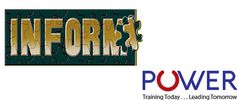- Location: Heliopolis - Cairo
- Duration / Course length: 5 Days
- Starting Date: Enquire About It
- Timings: Enquire
Course details
Course OutlineWorld-class Maintenance Philosophies
Five prevailing features of world-class maintenance programs
The 80:20 rule for maintenance
Three successful elements of a CBM program
Introduction to Machinery Lubrication
Oil formulation and its importance in effective machinery lubrication
Six key functions of lubricating oils
Three primary lubrication regimes
Introduction to base oils and additives
Choosing the correct base-stock
Conditions that dictate use of synthetic oils
Antioxidant additives and their role in oil life
Dispersants and detergents - the key to controlling soot
Controlling wear with additive chemistry
Oil Analysis Fundamentals
Interpreting the language your oil is speaking
Prevailing myths about oil analysis
Common applications for sampling and analysis
Three categories of oil analysis
Oil Sampling - The Very Best Practices
11 elements of a successful oil analysis program
How clean should sample bottles be?
How to find the best sampling locations
Sampling valves and hardware recommendations
A quick method for optimizing sampling intervals
The importance of primary and secondary sampling points
How to properly sample circulating systems
Safe, effective high-pressure sampling from hydraulic systems
Best practices for sampling splash-, collar-, and ring-lubricated systems
Fluid Properties Analysis
Four common root causes of oil degradation
Recognizing and controlling oil oxidation
Monitoring lubricant degradation using acid number
Monitoring lubricant health using FTIR
Determining oil life using RPVOT
Recognizing and controlling thermal failure
How to recognize additive depletion or degradation
Using paper chromatography (blotter spot test) to detect additive and base oil degradation
Four ways to detect the addition of wrong oil
Contamination Control and Proactive Maintenance
Seven common contaminants
Oil cleanliness and oil life extension benefits
Using the ISO Solid Contamination Code
Proactive maintenance in three easy steps
Case studies for proactive maintenance
Oil filter and breather recommendations
Portable filtration carts - three ways to use them
Setting targets for oil cleanliness
Detecting and controlling moisture contamination
Selecting moisture removal/filtration methods
The effects of heat on lubricants
Controlling air entrainment and foam
Glycol contamination
Dealing with soot
Understanding fuel contamination
Fault Detection and Wear Particle Analysis
How wear metals are measured using RDE and ICP spectrometers
Measuring larger particles with Rotrode Filter spectroscopy
Using ferrous density to determine the severity of a wear problem
Using analytical ferrography for advanced fault detection
Using ferrography for root cause analysis
Four primary sources of friction in lubricated machinery
The 10 wear mechanisms that reduce machine life
The most common wear modes in plain, rolling element, and thrust bearings
Understanding gear wear
Understanding wear in hydraulic systems
Instrument Free On-site Tests
How to inspect vents and breathers
Tips for effective sight glass inspection
Getting valuable information from used filters
Inspecting reservoirs for clues about lube trouble
Scenting lubricants to find problems
Getting visual clues from the oil sample before mailing it out
Getting into particle analysis for under $100
Turn your kitchen blender into a test for demulsibility and foam tendency
Screening for water with a simple hot plate
How an unwanted business card can reveal oil degradation
Interactive Case Studies Workshop
Individual and group participation in problem-solving exercises
Exercises in how to read an oil analysis report Updated on 05 April, 2018
Job roles this course is suitable for:
Oil Analysis Practitioners , Condition Monitoring Specialists , Plant Engineers , Plant Managers , Operations Managers , Maintenance TechniciansCourse Location
About Power Technical Training
"Power Consultancy & Training" is working in the field of technical & managerial training in Egypt and through the rest of the Arab world.
• Full understanding of the training arts.
• Effective, fast, and direct communication with our customers all over the world.
• Constant development of our potential through cooperative agreements with practical training centers and other HR centers.
• Pursuit and adoption of most recent developments in the field of training the world over.
• The Implementation of training services anywhere in the world.
• Adoption of standard methods in the implementation of training services.
• Provision of outstanding training services at the lowest possible cost.
Enquire about this course
You may add more courses here,
your list will be saved.



